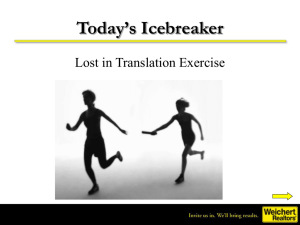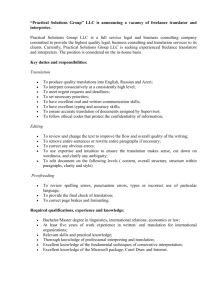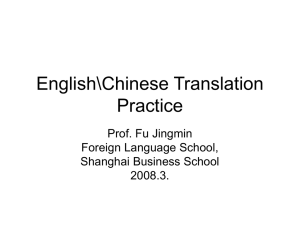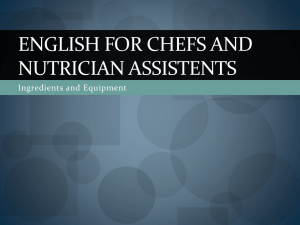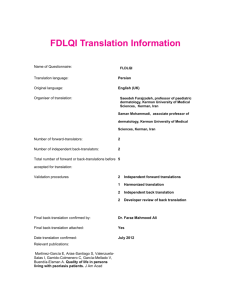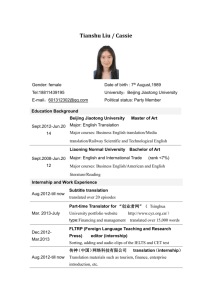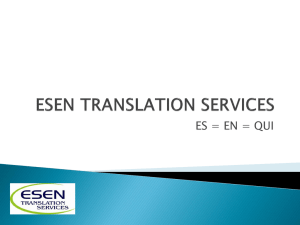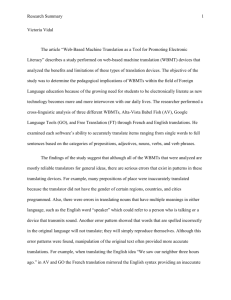questionnaire_for_experts - European Society for Translation
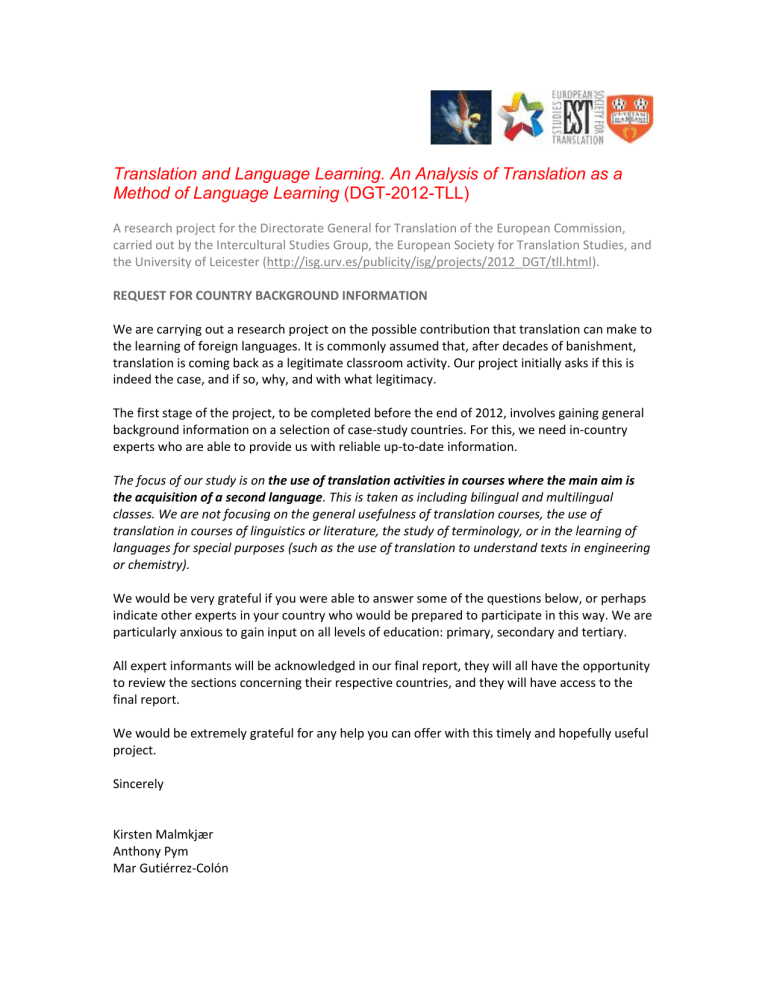
Translation and Language Learning. An Analysis of Translation as a
Method of Language Learning
(DGT-2012-TLL)
A research project for the Directorate General for Translation of the European Commission, carried out by the Intercultural Studies Group, the European Society for Translation Studies, and the University of Leicester (http://isg.urv.es/publicity/isg/projects/2012_DGT/tll.html).
REQUEST FOR COUNTRY BACKGROUND INFORMATION
We are carrying out a research project on the possible contribution that translation can make to the learning of foreign languages. It is commonly assumed that, after decades of banishment, translation is coming back as a legitimate classroom activity. Our project initially asks if this is indeed the case, and if so, why, and with what legitimacy.
The first stage of the project, to be completed before the end of 2012, involves gaining general background information on a selection of case-study countries. For this, we need in-country experts who are able to provide us with reliable up-to-date information.
The focus of our study is on the use of translation activities in courses where the main aim is
the acquisition of a second language. This is taken as including bilingual and multilingual classes. We are not focusing on the general usefulness of translation courses, the use of translation in courses of linguistics or literature, the study of terminology, or in the learning of languages for special purposes (such as the use of translation to understand texts in engineering or chemistry).
We would be very grateful if you were able to answer some of the questions below, or perhaps indicate other experts in your country who would be prepared to participate in this way. We are particularly anxious to gain input on all levels of education: primary, secondary and tertiary.
All expert informants will be acknowledged in our final report, they will all have the opportunity to review the sections concerning their respective countries, and they will have access to the final report.
We would be extremely grateful for any help you can offer with this timely and hopefully useful project.
Sincerely
Kirsten Malmkjær
Anthony Pym
Mar Gutiérrez-Colón
Country referred to in this report:
Your name:
Pertinent job title:
Institution where you work:
Language(s) you teach or have taught:
Years of experience in language teaching:
Today’s date:
All questions refer to courses where the main aim is the acquisition of a second language.
Please name any laws that regulate language teaching in your country.
Please name any current government policies or guidelines that regulate language teaching in your country.
Please name any current policies or guidelines in educational institutions that regulate language teaching in your country.
What language-teaching methods are popular in your country now?
Have the popular language-teaching methods changed since you started teaching?
Are translation activities present in the teaching of a second language in primary education? (In textbooks, for example?)
Are translation activities present in the teaching of a second language in secondary education? (In textbooks, for example?)
Are translation activities present in the teaching of a second language in tertiary or higher education?
Does the presence of translation activities depend on the language being taught?
In your country, is there increasing willingness among teachers or policymakers to introduce translation activities in the teaching of second languages? If so, at which level?
If attitudes to translation have changed in your country, to what would you attribute the change?
Do you personally favour the use of any kinds of translation activities in the language-learning class?
Are you aware of any empirical research on the positive or negative effect of translation activities? Could you give references?
Any additional information would be much appreciated.

